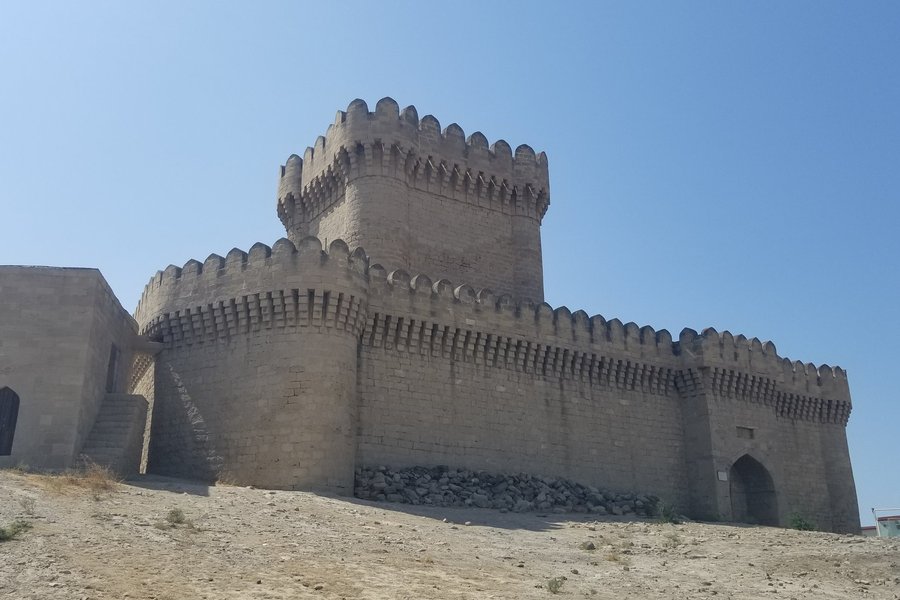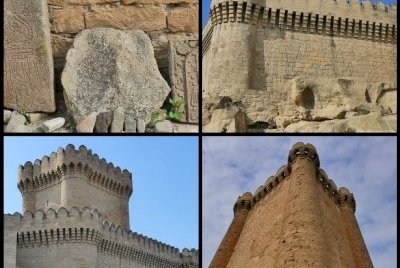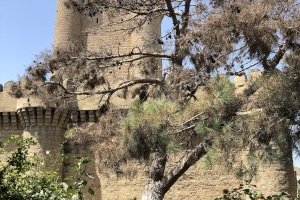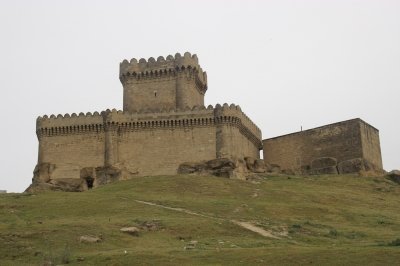Azerbaijan
The Caspian Shore Defensive Constructions
The Caspian Shore Defensive Constructions are a number of defensive barriers, strongholds, castles and towers between the Absheron peninsula and the border with Russia.
They were built to safeguard the trade route to Southwest Europe. They date from between the 5th and 14th centuries.
Site Info
Official Information
- Full Name
- The Caspian Shore Defensive Constructions (ID: 1573)
- Country
- Azerbaijan
- Status
-
On tentative list 2001
Site history
History of The Caspian Shore Defensive Constructions
- 2001: Added to Tentative List
- Added to tentative list
- Type
- Cultural
- Criteria
Links
- UNESCO
- whc.unesco.org
- Related
-
- en.wikipedia.org — Sabayil Castle
All Links
UNESCO.org
- whc.unesco.org — whc.unesco.org
Related Resources
- en.wikipedia.org — Sabayil Castle
Community Information
- Community Category
- Secular structure: Military and Fortifications
Travel Information
Recent Connections
News
No news.
Recent Visitors
Visitors of The Caspian Shore Defensive Constructions
- Afshin Iranpour
- Alexander Lehmann
- Boj
- Christoph
- Clyde
- Els Slots
- Erik G
- Evgenii
- George Gdanski
- Jakubmarin
- Jesse S 2010
- Juha Sjoeblom
- Maciej Gil
- MH
- Pieter Dijkshoorn
- Rodinia
- Rudegirl
- Stanislaw Warwas
- Szucs Tamas
- Thomas Buechler
- Thomas van der Walt
- Vanessa Buechler
- Vernon Prieto
- Walter
- Xiquinho Silva
- Yevhen Ivanovych
Community Reviews
Show full reviewsZoë Sheng
Caspian Shore Defensive Constructions
The Caspian Shore Defensive Constructions (On tentative list)

There are many defence structures around Azerbaijan for this tentative site and half are in Baku. Like most people I only visited the ones in Baku and I even did it in two parts. The ones at the sea further northwest are on a road you would be taking a tour bus on and private car wouldn't be worth going that way anyway. Previously I had visited Mardakan in the northeast PAST the airport. This time I did the other three. First, and easiest, is Sabayil Castle:
Wait? Where? Well, the castle is gone and only the walls remain UNDER the water. You can see it from the bay which you probably visit for the "epic" views. Baku Eye wasn't running and it was super hot but it was still a worthy visit. That there is an old castle in the bay wouldn't be known to just anyone. The most obvious pointer is a sign, a second would be the map we have. There is not much to see but birds (and those are boring sea gulls or ducks).
Second visit was Ramana Castle which most people use as their picture. The main reason is that it looks pretty good. You can see it from miles away and it's quite glorious even from close by. You cannot enter it even if they seemed to have plans to have visitors.
Third visit was Nardaran Fortress which is north of the town and maybe out of the way for most visitors. It …
Keep reading 0 commentsClyde
The Caspian Shore Defensive Constructions
The Caspian Shore Defensive Constructions (On tentative list)

I visited this tWHS in 2023 focusing mainly on the 4 locations in the Absheron peninsula closest to Baku, namely Mardakan, Ramana, Nardaran and Sabayil. The other 4 locations are further north towards Siyazan and Shabran on the way to the Azerbaijan-Russia border (close to Derbent).
For starters, the only location of the 4 closest to Baku that is currently still on the Caspian Sea shore is Sabayil, in fact it is now IN the Caspian Sea and its few foundation remains can be seen during low tide from near the Baku Eye waterfront. The other 3 locations are now further inland due to the Caspian Sea shrinking. Nardaran Fortress is the next least interesting site and can be found near the town of Mashtaga, just 25km from Baku. The Shirvanshahs used the fortress for both observation and defense. Its best highlight is the Arabic inscription (seen above in the main photo). The Nardaran Mosque or Rahimakhanim Sanctuary which was built in 1663 is located about 200 metres from the fortress. What's left of the fortress is a square defensive wall around a round tower. Nearby, on the way to the other remaining locations, there's a similarly shaped fortress which can be seen and appreciated better, within the Qala Archaeological and Ethnographic Museum Complex, with some interesting archaeological finds displayed in situ.
The best partially restored/reconstructed locations are those of Mardakan Castle and Ramana Tower. The quadrangular Mardana Castle is bang in the centre of a very residential …
Keep reading 0 commentsBoj
The Caspian Shore Defensive Constructions
The Caspian Shore Defensive Constructions (On tentative list)

Just before leaving Baku, I managed to visit Mardakan Square Tower (pictured here) and Ramana Tower. Nardaran Tower still remained closed to tourists (July 2022), much to my disappointment.
In terms of OUV, the selection of properties exhibit the importance of safekeeping the Caspian shore while uniting Azerbaijan with the rest of the Middle East and Europe.
A cause of concern is the private properties (houses and villas) built somewhat close to the tower gates.
Keep reading 0 commentsWalter
The Caspian Shore Defensive Constructions
The Caspian Shore Defensive Constructions (On tentative list)

This serial nomination consists of eight elements of defense built on the narrow costal plain between the eastermost peaks of the Caucasus mountains and the Caspian sea. Four elements are on the Absheron peninsula, and can easily be reached by bus from Baku, four are in the north, about an hour fom Baku, with very limited public transportation.
This narrow coastal plain is on average 11 km wide, with a narrow 2 km passage. Human trade route and bird migration use this corridor (called Besh Barmag bottleneck by ornithologists). It was on the northern border of the Sasanian empire and it successors. Derbent WHS (in Russia) and The great Wall of Gorgan TL (in Iran) are part of the same defense works.
Besh narmag peak, at 382 meter above the sea, overlooks the narrowest part of the corridor. This is a famous mountain in Azerbaidjan, as a mythical and sacred moutains, regularly visited by pilgrims. There is a dirt road going in the hills (passable with regular car, take the highway exit to Siyezen, and turn left after 2 km) and reaching a small setllement with shops and picnic restarant (all closed on the day of my visit). Steps then laders climb up to the peak, where a small mosque is built in the cliff. Entrance is free, but donations box are everywhere. Near the top of the peak lies wall of a fort, from which the corridor was totally controlled. At the bottom of the peak, a barrier was …
Keep reading 0 comments